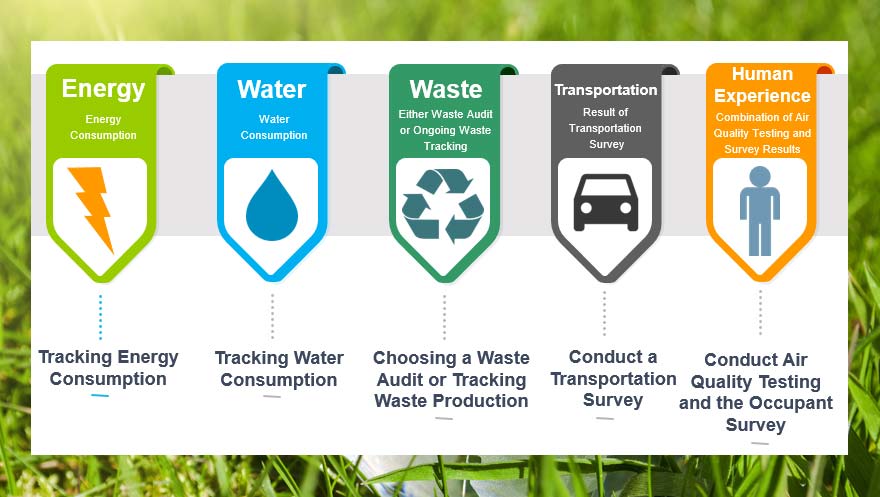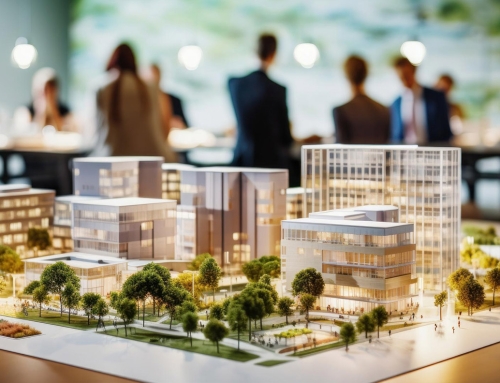Energy efficiency and environmental sustainability are far from new topics in commercial real estate. Despite this, ongoing development of more eco-friendly building materials, construction practices, designs, maintenance, and operations require investors to pay constant attention to stay up to date.
In addition to these developments, consumer attitudes are shifting with the knowledge that environmental sustainability options exist in CRE. A desire to make environmentally informed and responsible choices is becoming the new norm in real estate discussions.
Local and global regulations now reinforce the message: it’s on property developers, owners, and investors to be more conscious of the environmental impacts of their decisions. Fortunately, CRE professionals stand plenty to gain from these changes. We’ll go over how shortly.
But first, how did we get here?

A Brief History of CRE Environmental Sustainability in the US
California began implementing energy-efficient measures, including building code and appliance standards, as far back as the 1970’s. Possibly inspired by these efforts, Leadership in Energy and Environmental Design, or LEED, formed in 1993. LEED quickly began certifying “green buildings” based on a new construction standard.
By 2015, LEED was a comprehensive system of interrelated standards covering design, construction, maintenance, and operation. A year later, the effort to move towards environmental sustainability would formally go global with the Paris Agreement.
Though President Trump announced plans to withdraw from the agreement, and has taken steps to dismantle the US’s Clean Power Plan, the White House is under pressure to remain. Looking beyond the US reveals the larger trend: sustainability is in. Whether the US is following formally or not, it’s impossible to ignore the on-the-ground efforts of states, municipalities, investors, and business owners.

How Energy Efficiency Increased CRE Property Revenue
Money saved is money earned, of course. Investors took interest in these more lucrative building options. Lighting, in particular, got a lot of attention. Before more recent developments, lighting alone could account for almost 40% of a building’s energy usage—a large chunk of the electric bill! For many buildings, lighting costs competed with those of heating or cooling the building.
Advances in LED technology have made energy efficient lighting not only more accessible, but more affordable. Use of this more efficient lighting is now backed by law for commercial properties in many locations. In the US, the Energy Independence and Security Act of 2007 requires higher efficiency standards for light bulbs. While the initial cost of updating lighting can be high, the savings over time are worth the investment.
There are many state-specific incentives for using energy-efficient technologies. Building developers and owners are generally aware of these, but may not know of unincentivized opportunities to reduce cost and benefit from energy efficiency. Due diligence is, as always, required.

Consumer Investment in Sustainable Real Estate
As CRE evolves, we must consider changes in society, the economy, and culture. Being sustainable is no longer an “added feature,” but an expectation. As an example, 81% of respondents in a global survey feel strongly that companies should help improve the environment.
People have come to expect environmentally sustainable buildings. A more socially conscious generation moving into the workforce also means decisions about building materials, design, operation, and more will be made by people who care about the environment.
The largest pool of potential tenants is likely to come from this younger generation. It’d be foolhardy for an investor to ignore an opportunity to buy or upgrade properties without their carbon footprint in mind. Properties that clearly consider the environment in their building design and maintenance stand out to rising generations.
When considering property investments, ask about energy efficiency and sustainability. If you’re not sure where to start, we’ll go over just a few ways building developers and renovators can make efforts toward being more eco-friendly.

What Can CRE Investors Do?
There are a few questions one can ask to guide talks around sustainable buildings. If a property is slated to be upgraded, for example, ask that exterior windows and doors be caulked and insulated. Request energy-efficient appliances and HVAC. Seek eco-friendly painting options for the interior. And, of course, research the most efficient lighting options that make sense for the property.
Proper maintenance of water heaters and other systems is key to energy conservation, and can be improved even without major renovations. To really maximize efficiency here, insulate the water heater and consider adding a drain water recovery system.
All of this will save on electric costs, but if you’re looking to be even more proactive, consider solar options. Checking to make sure a building is properly insulated can also pay off long-term. If a building is certified for energy efficiency with efforts such as these, it can warrant a premium for tenants.
For water conservation, ask about low-water landscaping. When considering new investments, consider broader-reaching impacts beyond the building. Is the building in a walkable location? Is there access to public transportation, or bike sharing? Adding features like a community garden and on-site recycling can attract the younger, more carbon-conscious generation.

Environmentally Responsible Commercial Real Estate
At the end of the day, environmental sustainability is the right thing to do. Commercial properties have a huge impact on carbon emissions and energy consumption; it’s the responsibility of those who build, buy, and invest in them to take steps to preserve the health of the planet we’ll pass on to future generations. As younger generations enter CRE, caring about these impacts will be less of an option, and more of a requirement.
Green practices benefit our tenants and our planet, which benefits CRE professionals. Continuing efforts to make buildings increasingly sustainable is a more than worthy pursuit.
PRC Expert Advisory and Commercial Financing
Pioneer Realty Capital is a preferred advisory and lender to commercial real estate developers, owners, and small businesses across the United States. Visit our Commercial Real Estate Loans page to learn more about our thousands of loan programs from over 800 capital partners. If you need help building or maintaining your financial portfolio to be more profitable, call 682-518-9416 or fill out this quick form to speak to a financial expert.













Get Social